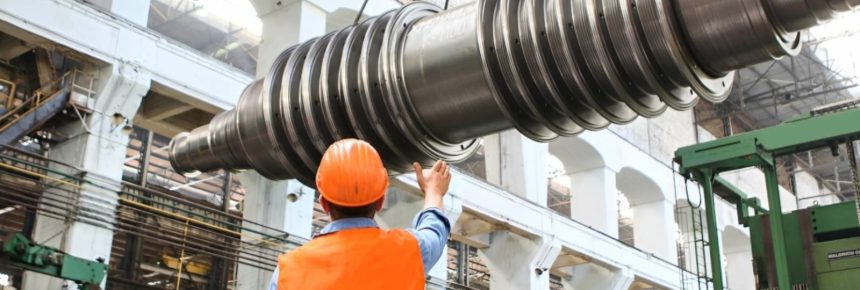Manufacturing engineering is a crucial component of the manufacturing industry. It involves the design, development, and implementation of manufacturing processes and systems that are efficient and effective in producing high-quality products. In this blog, we will explore the importance of manufacturing engineering and its role in ensuring the success of manufacturing operations.
The Role of Manufacturing Engineering
Manufacturing engineering is responsible for designing and optimizing manufacturing processes and systems that are capable of producing high-quality products at a reasonable cost. Manufacturing engineers are involved in every stage of the manufacturing process, from design to production, and work closely with other departments such as research and development, quality control, and supply chain management.
One of the primary roles of manufacturing engineering is to ensure that manufacturing processes are efficient and effective. This involves identifying areas of waste and inefficiency and implementing solutions to improve productivity and reduce costs. Manufacturing engineers may use a variety of tools and techniques to accomplish this, such as lean manufacturing, Six Sigma, and process mapping.
Manufacturing engineering is also responsible for ensuring that products are produced to meet specific quality standards. This involves developing and implementing quality control systems that monitor and measure product quality throughout the manufacturing process. Manufacturing engineers may also work with suppliers and customers to ensure that product specifications are met and that products meet customer expectations.

The Importance of Manufacturing Engineering
Manufacturing engineering is crucial to the success of manufacturing operations. Without effective manufacturing engineering, manufacturing processes would be inefficient, costly, and prone to quality issues. By optimizing manufacturing processes and systems, manufacturing engineering can help companies achieve greater productivity, lower costs, and higher quality products.
Manufacturing engineering is also important for ensuring that companies can remain competitive in the global marketplace. By optimizing manufacturing processes and systems, companies can reduce costs and improve quality, allowing them to offer products at competitive prices. Additionally, by continually improving manufacturing processes and systems, companies can remain agile and responsive to changing market demands.
Manufacturing engineering is also important for driving innovation in the manufacturing industry. By developing and implementing new manufacturing processes and systems, manufacturing engineers can help companies stay ahead of the curve and develop new products that meet emerging customer needs.
Manufacturing engineering is a specialized field of engineering that deals with the design, development, and implementation of manufacturing processes and systems. It involves a wide range of technical skills and knowledge, as well as an understanding of business and management principles. In this article, we will explore the typical syllabus and job roles of manufacturing engineering.
Syllabus of Manufacturing Engineering
The syllabus of manufacturing engineering typically includes courses in the following areas:
- Materials Science and Engineering: This covers the properties and behavior of materials, including metals, polymers, ceramics, and composites. It also includes the principles of material selection, processing, and testing.
- Manufacturing Processes: This covers the various manufacturing processes used to create products, such as casting, forging, machining, forming, and welding. It also includes the principles of process planning, optimization, and control.
- Computer-Aided Design and Manufacturing: This covers the use of computer software to design and manufacture products. It includes courses in computer-aided design (CAD), computer-aided manufacturing (CAM), and computer-aided engineering (CAE).
- Quality Control and Assurance: This covers the principles of quality control and assurance, including statistical process control (SPC), inspection techniques, and testing methods.
- Industrial Management: This covers the principles of business and management, including accounting, finance, marketing, and operations management.
Job Roles of Manufacturing Engineering
Manufacturing engineering graduates can work in a variety of roles in the manufacturing industry. Some common job roles include:
- Manufacturing Engineer: This role involves designing and optimizing manufacturing processes and systems to improve productivity, reduce costs, and ensure product quality.
- Process Engineer: This role involves developing and implementing new manufacturing processes and systems to improve product quality, reduce costs, and increase efficiency.
- Quality Engineer: This role involves developing and implementing quality control systems to monitor and measure product quality throughout the manufacturing process.
- Operations Manager: This role involves overseeing the day-to-day operations of a manufacturing facility, including production scheduling, inventory management, and quality control.
- Product Design Engineer: This role involves designing products and developing prototypes using CAD and other computer software.
Conclusion
Manufacturing engineering is a critical field that plays a vital role in the manufacturing industry. By designing and optimizing manufacturing processes and systems, manufacturing engineers can help companies achieve greater productivity, lower costs, and higher quality products. Graduates with a degree in manufacturing engineering can pursue a variety of job roles in the manufacturing industry, including manufacturing engineer, process engineer, quality engineer, operations manager, and product design engineer.










